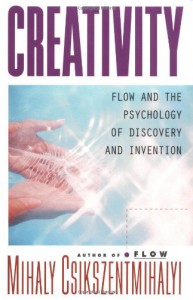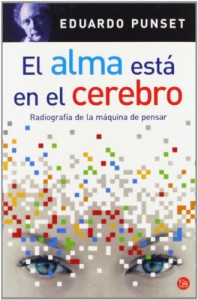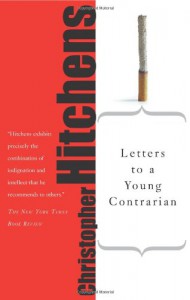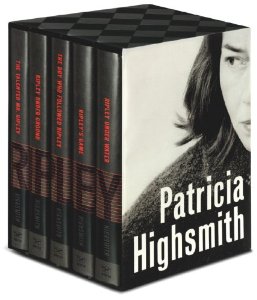Atheist Reads
Brokeback Mountain - Review

This is a novella rather than a full length novel. You can read this in at most a couple of hours even if you read slowly.
Still it is a memorable, even though I found it to bee a bit too short for the time it presents. The story lasts several years.
And to make it clear, it is not an erotic novel. The first part has a few lines that could be considered erotic, even pornographic, but there not that long, and don't do into much detail. Most of the story revolves around the lives of the characters and even those we get very few moments drawn out in full, again because of how short it is.
A warning though: the story is quite sad and to an extent even depressing because of some of the deterministic outlook presented.
The mood of the book is quite well done. It stays with you for a while after finishing reading it and that alone would make me say that this is worth a read.
Creativity - Review

A basically good presentation of what the so called positive psychology movement has found up until now about the nature of creativity.
But beware, this is not hard science!
The main content of the book is based on interviews with people considered to be successfully creative in the Western countries, Nobel laureates, researchers, artist (none of them well known, at leas not to me) and the book quotes long passages from the interviews as examples.
Some of these are cringe inducing. There is one particular female subject who goes on a rather new-age inspired esoteric tangent which was terrible and is the reason I can't whole hardheartedly recommend this book.
It is not the end all be all of creativity research, it is much more a simplified version for the public and tries to touch on every possible domain that could be considered a creative line of work.
On the plus side it presents the lives and the work styles of several scientists which is really inspiring and has no need for a divinely inspired reason. Some of the descriptions of why and how they create or work on solving a particular question using science is what makes me say that all the faults of positive psychology of glorifying an ambiguous and non-defined spirituality aside, this is a book worth reading of you'we ever been curious about how the minds of creative people work and what their creative process looks like.
The Soul is in the Brain - Review

A very basic introduction to neuroscience ideas and models of how the mind works.
The language is very simple, the content is also simple, nothing too complex or overloaded with scientific jargon, so almost anyone can read this (12-13 years and up).
It may be for you if you'we never read anything about how neuroscientist think about the brain and it's connection to consciousness and what we call the soul.
It is by far not a comprehensive presentation on all there is to know, or that one should know but rather the bare necessities.
So read this if the subject seems interesting but you don't quite feel ready to read through a 600 + page manual on brain research.
Letters to a Young Contrarian (Christopher Hitchens)
(...) Even if we did really harbor this desire, it would fortunately be unattainable.
"
Letters to a Young Contrarian (Christopher Hitchens)
Letters to a Young Contrarian (Christopher Hitchens)
Letters to a Young Contrarian (Christopher Hitchens)
Christopher Hitchens – Letters to a Young Contrarian

Advice from Christopher Hitchens told in the form of letters to young people who wish to become independent thinkers and contrarians, aka people who question the official position and authority.
I personally didn't like the format of letters that much, but the essence of it, the advice on how to research what to read to get yourself into the mindset of a contrarian, how to debate, and why you should debate are fascinating and brilliant.
Highly recommended.
The Ripliad
Patricia Highsmith's Ripley series, or as it is referred to, the Ripliad, is the story of Tom Ripley, our main character, with some sociopathic tendencies, who goes around killing people.
The series consists of five novels, featuring the character of Tom Ripley.

The order of the books is as follows (by publication date):
The Talented Mr. Ripley
Ripley Under Ground
Ripley's Game
The boy Who Followed Ripley
Ripley Under Water
If you are not familiar with Highsmith's characters and overall style you might be in for a surprise, or a real treat, depends on how sensible you are regarding the topic of murder.
The main characters in Highsmith's novels are usually murderers and you follow them not the brilliant detective how catches the villain in the end.
Think of it more as Dexter than Hercule Poirot.
Because the books were written between 1955 and 1991, the events and the tone of the books reflect this very much. If you feel nostalgic for the time when you didn't have instant acces to anyone via their twitter feed, Facebook status or cell phone, this is really great for that.
This also means that unlike the openly hostile, cynical and loud and proud of it anti-establishment/authority characters like Dexter or dr. House, Ripley is a murderer yes, but he is also a con artist and he wants to fit in as best as possible, especially because this would guarantee that he not be caught for the multiple murders he commits during the series.
In the first novel, that was made into a movie a few times, the latest being the 2005 adaptation with Matt Damon as Ripley, we get introduced to Tom and follow him to the adventure and chance of his lifetime: a trip to Italy to try and convince the son of a wealthy American businessman to return home.
(Spoiler!)
Tom ends up killing said heir and being the brilliant conman that he is, even replaces him for a few months. By the end of the book he gets away with the murder (as most of Highsmith's main characters) and even manages to assure himself a nice little fortune from his victim's family.
Now that all may sound terrible (and it would be), but it's all told in such a way that you end up rooting for Tom and hoping he gets away with it.
(End of spoiler)
One of the most emphasized traits of Ripley is that he's a sociopath and that he has no conscience. In later books this turns out to be partially false.
Ripley is not an unfeeling, emotionless, psychopath, but he does think clearly about his actions and the consequences thereof and acts accordingly.
To me this is what makes him a fascinating character. He thinks it through and decides that the best course of action that he could take is to kill X or Y. And in the following books some of these decisions come back to haunt him. He then again makes his decision based on what has happened and what could happen if he takes certain steps and not others.
The only case he feels remorse about is his first murder, the rest not so much, in some cases he even thinks of them with a certain kind of pride, but he never thinks about how he will be punished by some sort of divine power for having murdered several people.
Mentions of god and beliefs are only in The Boy Who Followed Ripley, and even then a very casual mention, normal for everyday conversation.
The focus of the books is on Ripley and how he gets out of trouble every time using his whits and ability to disguise himself and play the role of other people.
All in all I recommend it, but not the 2005 movie adaptation.
I recently re-watched the movie, after reading all of the Ripliad, and some things about the Ripley character in the movie, are so far from the Ripley in the books that it make him an entirely different character. So if you watch it expect it to be something completely different.
On the other hand Matt Damon is, psychically the perfect Ripley in my opinion. I always pictured him like. There is another adaptation with John Malkovich as Ripley out there, which I haven't seen, but to me Ripley will always be Matt Damon.
The series has some homoerotic undertones (especially in The Boy Who Followed Ripley) but not as much as in the 2005 movie adaptation, but as far as I can tell Ripley is not really gay or even bisexual (there is one remark in the first book and a few scenes that hint to this), for the most part he is married, happily, though not too passionately with Heloise and in The Boy Who Followed Ripley he expresses the most affection yet towards her.
The author herself has said that he is not gay, but if you don't mind, or are looking for a good book which has subtle undertones of this kind or is not averse to such topics then this is also recommended.
Overall in my opinion the weakest book in the series is The Boy who followed Ripley, the best are The Talented Mr. Ripley and Ripley Under Water, and the rest are around 4 out of 5.
Eat, Pray, Love
Eat, Pray, Love

Not recommended.
The basic premise of the book is that the author goes through a personal crisis - her failed marriage - and finds enlightenment in hedonism and platitudes, and the main the tool which she uses for this year-long quest, is not, as one would think an airplane, but magical thinking.
The following quote sums up what's worst about it goes as follows:
I couldn't care less about evidence and proof and assurances. I just want God. I want God inside me. I want God to play in my bloodstream the way sunlight amuses itself on water.
After this I could not take the book, or it's author seriously.
If you don't mind magical thinking, naivete and wishful thinking as long as it gets a happy ending then you can read it, but be prepared for a lot of platitudes, and thinking along the lines of the above quote.
The writing itself is not bad. You can tell this isn't the first thing Gilbert wrote, and that she isn't doing it as a side job or as a hobby but as a full time profession.
Still a little professionalism doesn't make up for the fact that the ideas and the way of thinking presented in it are terrible and childish.



